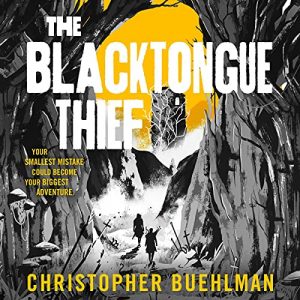 The Restaurant of Lost Recipes (Kamogawa Food Detectives, #2) by Hisashi Kashiwai, Jesse Kirkwood
The Restaurant of Lost Recipes (Kamogawa Food Detectives, #2) by Hisashi Kashiwai, Jesse Kirkwood Format: eARC
Source: supplied by publisher via Edelweiss
Formats available: hardcover, paperback, ebook, audiobook
Genres: cozy mystery, foodie fiction, literary fiction, magical realism, translated fiction, world literature
Series: Kamogawa Food Detectives #2
Pages: 224
Published by G.P. Putnam's Sons on October 8, 2024
Purchasing Info: Author's Website, Publisher's Website, Amazon, Barnes & Noble, Kobo, Bookshop.org, Better World Books
Goodreads
The Restaurant of Lost Recipes is the second book in the bestselling, mouth-watering Kamogawa Food Detectives series, for fans of Before the Coffee Gets Cold.
We all hold lost recipes in our hearts. A very special restaurant in Kyoto helps recreate them...
Chef Nagare and his daughter Koishi serve their customers more than delicious food at their Kamogawa Diner down a quiet street in Kyoto. They can help recreate meals from their customers’ most treasured memories. Through ingenious investigations, these “food detectives” untangle flavors and pore through old shopping lists to remake unique dishes from the past.
From the swimmer who misses his father’s lunchbox to the model who longs for fried rice from her childhood, each customer leaves the diner forever changed—though not always in the ways they expect…
A beloved bestseller in Japan, The Restaurant of Lost Recipes is a tender and healing novel that celebrates the power of community and delicious food.
My Review:
The premise of this series is simple, beautiful and TRUE in all the best ways.
Hunger may be the best sauce, but nostalgia comes a close second. The difference is that hunger makes everything taste better – while nostalgia can only be satisfied by the correct combination of flavors and smells. The one that takes us back to the original that we remember so fondly and are able to reproduce so rarely.
It’s that reproduction – and the memories that come along with it – that makes this series both fascinating and heartwarming.
The Kamogawa Food Detectives are Chef Nagare and his adult daughter Koishi. Their little hole in the wall restaurant in Kyoto is a place that only the locals know. There’s no sign outside and they do almost no advertising. What little advertising they do isn’t even about the restaurant.
Their one line ad in a gourmet magazine proclaims, “We Find Your Food!”, which is exactly what they do. The clients for their food detection service come because they are desperate to recreate a taste – and the feelings that go along with it – that they barely remember but can’t let go of.
That they succeed isn’t magic – but it is. All it takes is a story and a fading memory and a whole lot of detection on the part of Chef Nagare – as well as a whole lot of taste-testing on the part of Koishi – to recreate just what the client has been searching for.
Each case – each story – is just a bit different. The process is the same, but the results are as variable as the clientele. Along the way, linking the separate vignettes into a harmonious whole, is the story of Nagare and Koishi, their banter, their gentle teasing, their excellent father-daughter relationship – and the way they include the missing member of their family, Nagare’s late wife Kikuko – in a way that demonstrates love and care and gentle grief and moving on all at the same time.
There may not be magic in the fantasy or magical realism sense in this book or this series, but the story is absolutely magical all the same.
 Escape Rating A-: This is the series that got me firmly hooked on these cozy mystery/fantasy/magical realism type stories (the ones that trace their origin inspiration to Before the Coffee Gets Cold). After devouring this book in one sitting, I’m now certain that this is my favorite of them all in spite of the fact that nearly all of the others, there’s not even a hint of any actual magic.
Escape Rating A-: This is the series that got me firmly hooked on these cozy mystery/fantasy/magical realism type stories (the ones that trace their origin inspiration to Before the Coffee Gets Cold). After devouring this book in one sitting, I’m now certain that this is my favorite of them all in spite of the fact that nearly all of the others, there’s not even a hint of any actual magic.
It still seems like magic, but I think that magic can be put down to two factors – or at least this is how it’s working for me. One factor is the background story, the relationship between Nagare and his adult daughter Koishi and that it does work. Their relationship is just plain good in a way that seems magical because I honestly can’t imagine ever living with my parents as an adult and having them actually treat me as a functional adult. We weren’t that fortunate – although Koishi is.
We don’t get a lot of their daily lives in the spaces between their customers’ stories, but the bits we do get seem to be building on each other in a way that I simply find charming and heartwarming and I hope that other readers do as well.
As much as I enjoy the individual customers’ stories, Nagare and Koishi are the people carrying the story overall, and the other part of what I love is that the ‘magic’ of their food detective business comes down to good interview techniques on Koishi’s part, good investigative skills on Nagare’s part, a willingness to chase down any clue as well as, of course, Nagare’s skill in the kitchen and his willingness to experiment as often as it takes to get the dish exactly right.
The stories wouldn’t be half as much fun if they could just snap their fingers and make it happen. The breathless anticipation on the part of the customer – and the nervous worry on the part of the chef and the detective – make each customer’s story really pay off for both them AND the reader.
I do enjoy the individual stories, but without Nagare and Koishi to tie it all together the books wouldn’t work nearly as well, at least for this reader.
I’ll admit that I’ve been salivating for this book since the minute I finished the first book in the series, The Kamogawa Food Detectives. I mean that both literally and figuratively, as the food described within both stories as well as their presentation is absolutely mouth-watering. So don’t go into this series hungry. I mean it! You have been warned!
IMHO, this was totally worth the wait. I loved it and ate it up in one sitting. I’m just happy that there are several more books in the series in the original Japanese, so I have hopes that more will be translated – preferably as soon as possible!

 Fear the Flames (Fear the Flames, #1) by
Fear the Flames (Fear the Flames, #1) by  Queen Macbeth by
Queen Macbeth by  Escape Rating A-: I picked up Queen Macbeth because this is the second retelling of the Macbeth story from Gruoch’s perspective, set in something much closer to the historical context, to be published this year. The other being
Escape Rating A-: I picked up Queen Macbeth because this is the second retelling of the Macbeth story from Gruoch’s perspective, set in something much closer to the historical context, to be published this year. The other being  I’m aware that I keep talking ‘around’ this story instead of ‘about’ this story because a) it’s not exactly new, it’s part of the literary trend of telling classic stories from a female perspective that was popularized by Madeline Miller’s Circe a few years back, and 2) the circumstances that surround this particular participant in that trend grabbed me more than the story itself. A fascination that only grew when I learned that this book is the latest in a series of
I’m aware that I keep talking ‘around’ this story instead of ‘about’ this story because a) it’s not exactly new, it’s part of the literary trend of telling classic stories from a female perspective that was popularized by Madeline Miller’s Circe a few years back, and 2) the circumstances that surround this particular participant in that trend grabbed me more than the story itself. A fascination that only grew when I learned that this book is the latest in a series of  Graveyard Shift by
Graveyard Shift by  The Banned Books Club by
The Banned Books Club by  I picked this book for today because Sunday is the official start of
I picked this book for today because Sunday is the official start of  It tells not just one but two stories that make people uncomfortable – which is what really lies behind all of the book bannings. (Purported reasons for that discomfort certainly vary – but the fact of the discomfort remains the same) The three books that were removed from Gia’s high school reading list have all been repeated targets of challenges and bans for the past 30 years if not longer.
It tells not just one but two stories that make people uncomfortable – which is what really lies behind all of the book bannings. (Purported reasons for that discomfort certainly vary – but the fact of the discomfort remains the same) The three books that were removed from Gia’s high school reading list have all been repeated targets of challenges and bans for the past 30 years if not longer.
 Haunt Sweet Home by
Haunt Sweet Home by  The Daughters' War (Blacktongue, #0) by
The Daughters' War (Blacktongue, #0) by  Escape Rating A++: I don’t give A++ ratings often as that’s kind of the point of the thing, but The Daughters’ War absolutely earned one – as did
Escape Rating A++: I don’t give A++ ratings often as that’s kind of the point of the thing, but The Daughters’ War absolutely earned one – as did  Chasing New Suns: Collected Stories by
Chasing New Suns: Collected Stories by  “Five Days Until Sunset” (originally published in
“Five Days Until Sunset” (originally published in  A Dark and Drowning Tide by
A Dark and Drowning Tide by  This World Is Not Yours by
This World Is Not Yours by  Instead, this is a story where this planet’s equivalent of Gaia manifests as an actual persona, and she has a mission and an agenda to keep the planet in ecological balance at ALL costs. Once she’s decided that the humans are incapable of being anything other than what they are – greedy and rapacious – well, a planet’s gotta do what a planet’s gotta do.
Instead, this is a story where this planet’s equivalent of Gaia manifests as an actual persona, and she has a mission and an agenda to keep the planet in ecological balance at ALL costs. Once she’s decided that the humans are incapable of being anything other than what they are – greedy and rapacious – well, a planet’s gotta do what a planet’s gotta do.